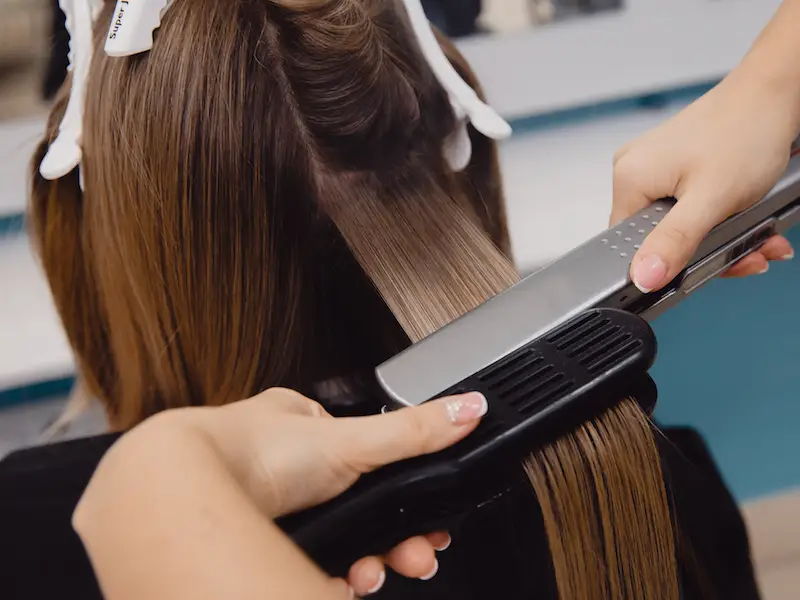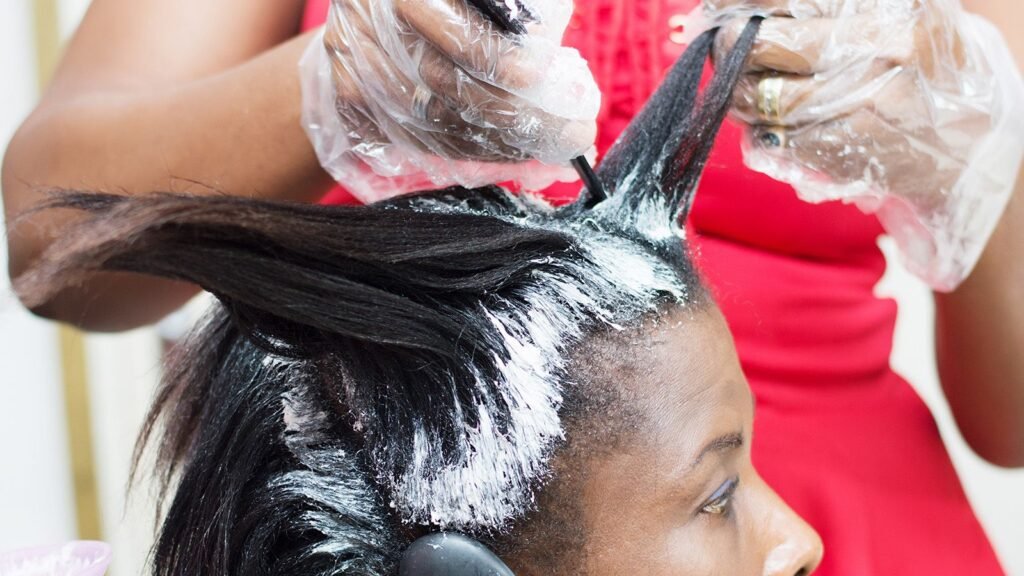General News
US: FDA Takes Bold Step to Ban Risky Hair-Straightening Products

The US Food and Drug Administration (FDA) is taking a significant step to protect public health by proposing a ban on certain hair-straightening products that have been linked to serious health risks.
According to the Unified Agenda, which outlines actions planned by administrative agencies, the FDA intends to propose a rule specifically targeting hair-straightening products containing formaldehyde and other formaldehyde-releasing chemicals like methylene or glycol.
The proposed rule aims to address concerns raised by scientists, who have long identified a connection between the use of these chemical products and an increased risk of hormone-related cancers, such as ovarian, breast, and uterine cancer.
This association is particularly pronounced among Black and Latina women, with research indicating that approximately 50% of products advertised to Black women contain these chemicals, compared to only about 7% of products marketed to White women, as noted by the Harvard T.H. Chan School of Public Health.
The FDA’s proposed rule is expected to highlight that these hair-straightening chemicals are not only linked to long-term health risks but also to short-term adverse effects, such as sensitization reactions and breathing problems.
These chemicals are commonly found in cosmetic products designed to smooth or straighten hair when used in combination with chemical and heating tool treatments.
In March, Representatives Ayanna Pressley and Shontel Brown wrote to FDA Commissioner Dr. Robert Califf, urging the agency to conduct a thorough investigation into the presence of carcinogens in hair-straightening products.
Both lawmakers have commended the FDA’s action and called for the prompt implementation of this ban to protect the health of Black women and address systemic racism related to hair products.
A study published in the Journal of the National Cancer Institute last year found evidence of an association between hair-straightening products and uterine cancer.
Women who frequently used these products faced a higher risk of developing uterine cancer, with the risk reaching approximately 4% by age 70, in contrast to around 1.6% for those who did not use these products in the preceding 12 months.
One woman from Missouri filed a lawsuit against L’Oreal and other entities, alleging that her uterine cancer resulted from regular and prolonged exposure to chemicals in hair-straightening products. L’Oreal has defended its products’ safety, stating that they undergo rigorous safety evaluations and adhere to all applicable regulations.
This proposed ban by the FDA is a crucial step toward safeguarding public health and ensuring that consumers can confidently use cosmetic products without fear of potential health risks associated with hair straighteners and relaxers.























![JUST IN: Bibiani-Ahwiaso MCE Dead After A Tragic Accident [VIDEO]](https://enewsghana.com/wp-content/uploads/2022/07/FotoJet-1-5-80x80.jpg)
!["I Am One Of The Black Stars" - Inaki Williams Says As he announces Nationality Switch [WATCH]](https://enewsghana.com/wp-content/uploads/2022/07/Imaki-80x80.jpg)